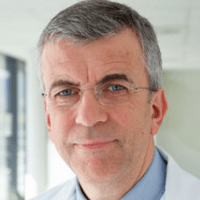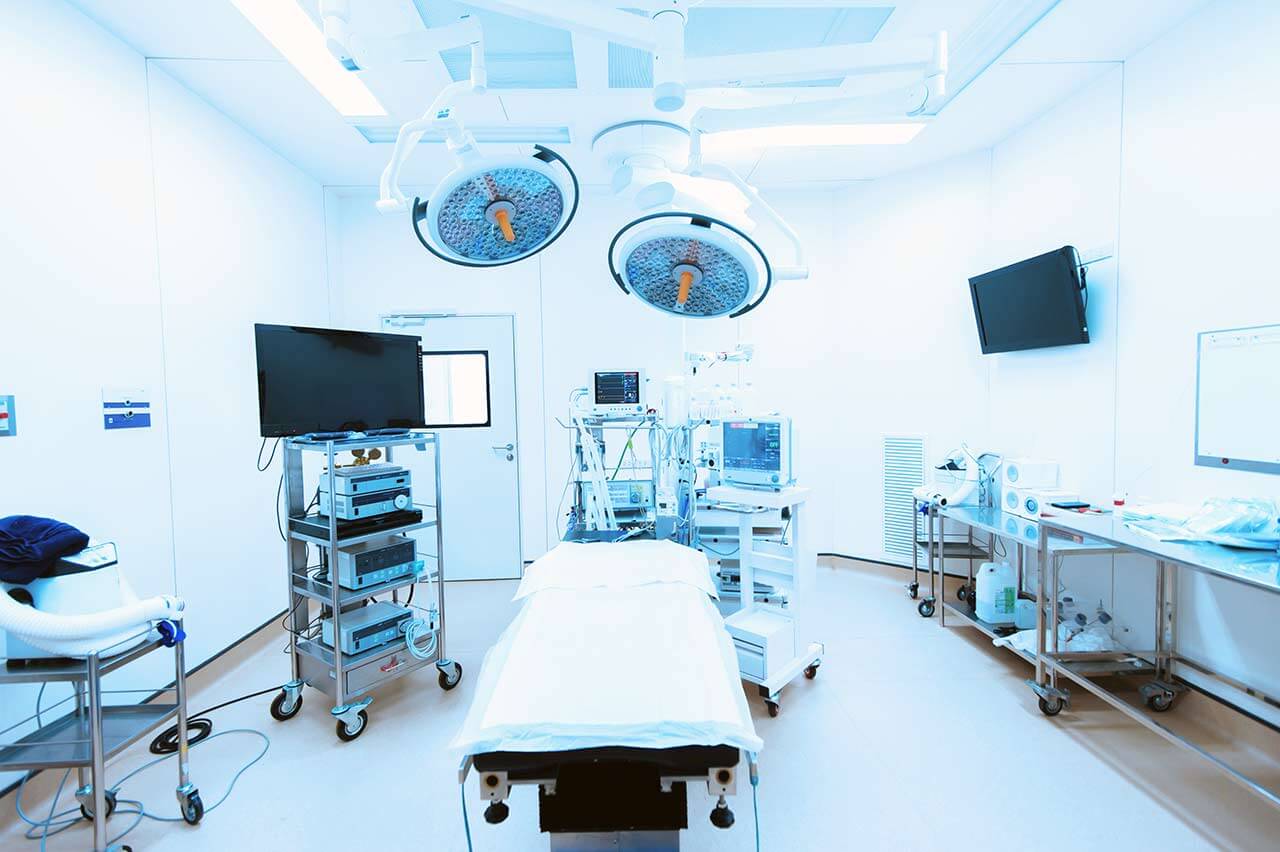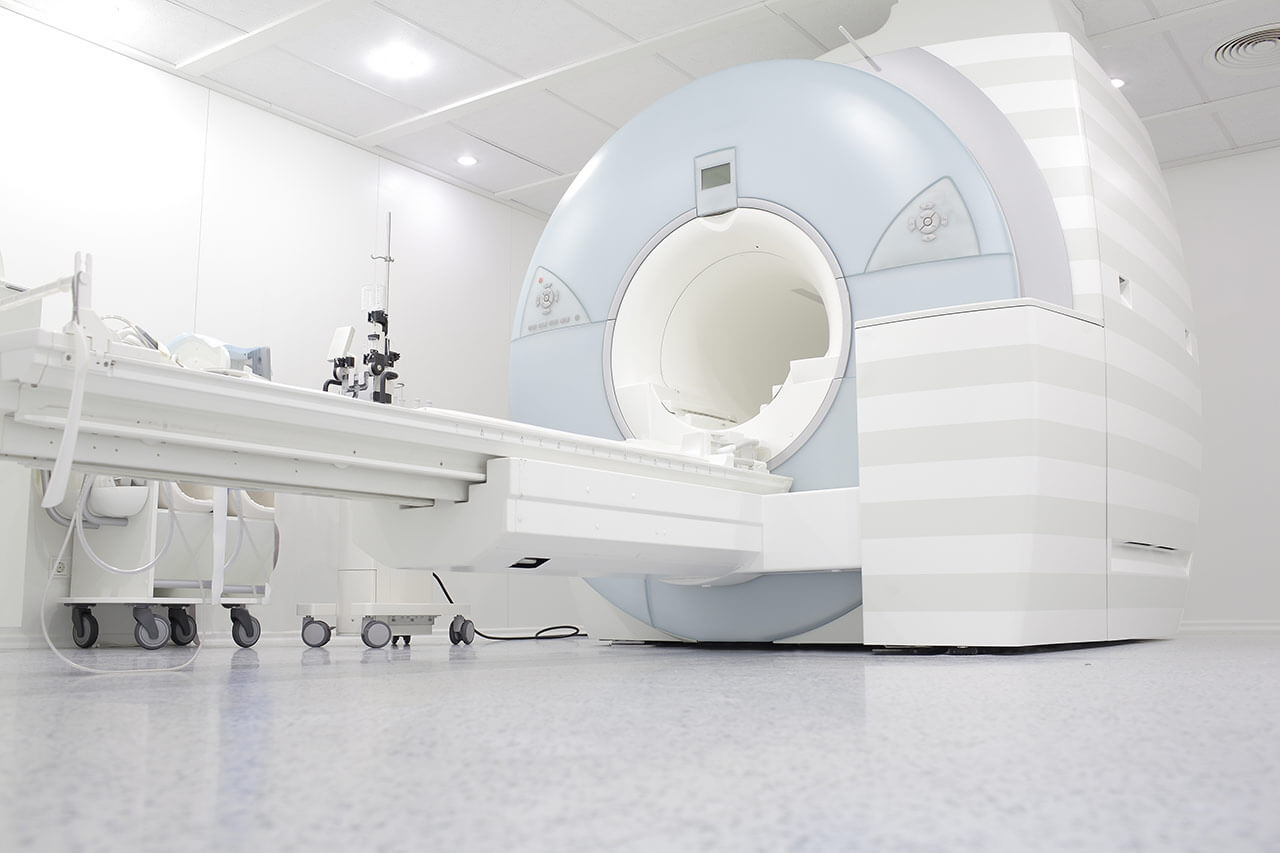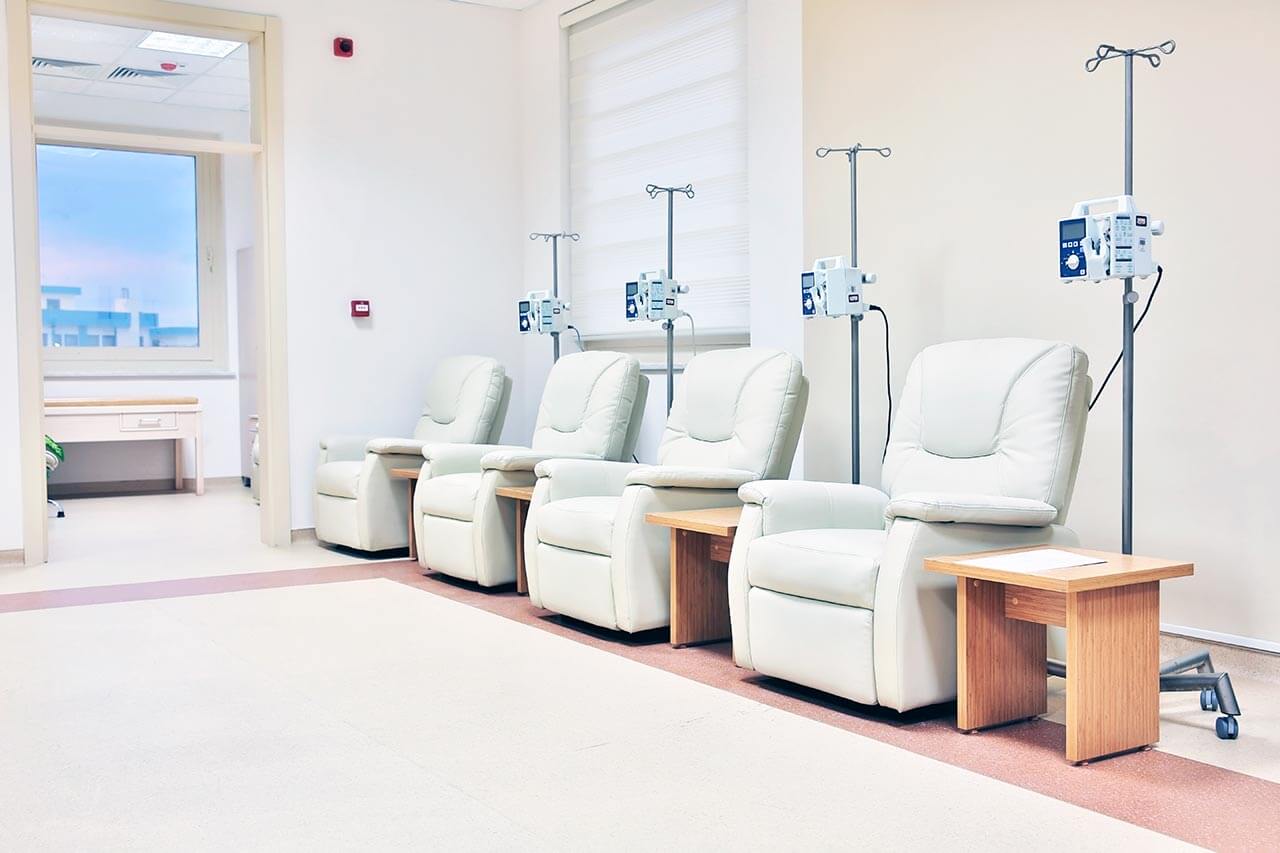
The program includes:
- Initial presentation in the clinic
- clinical history taking.
- review of medical records
- physical examination
- laboratory tests:
- complete blood count
- biochemical blood test
- inflammation markers (CRP, ESR)
- blood coagulation analysis (aPTT, PT, INR)
- barium passage
- ultrasound of the abdomen
- gastroscopy with biopsy
- H.pylori analysis
- nursing services
- consultation of related specialists
- treatment by chief physician and all leading experts
- explanation of individual treatment plan
Service
You may also book:
 BookingHealth Price from:
BookingHealth Price from:
About the department
The Department of Gastroenterology, Hepatology, Cardiology and Pulmonology at the Hospital Nordwest Frankfurt am Main offers the high-precision diagnostics and modern conservative treatment methods for patients with diseases of the gastrointestinal tract, liver, lungs, respiratory tract and heart. The department's medical team has a huge arsenal of state-of-the-art diagnostic devices for endoscopic examinations, ultrasound examinations, pulmonary function testing and cardiac catheter-assisted diagnostics. The therapeutic options of the medical facility are also quite extensive – from drug therapy and endoscopic therapeutic procedures to therapeutic cardiac catheter-assisted procedures. The department has a specialized Chest Pain Unit certified by the German Cardiac Society. The patients with acute coronary syndrome, heart arrhythmias and syncopes can receive emergency care here. The department's medical team works for the benefit of its patients providing them with top-class diagnostics and treatment. The department offers a pleasant and friendly atmosphere for the patient to feel as comfortable as possible. The department is headed by Prof. Dr. med. Siegbert Rossol.
The department's specialists pay special attention to the treatment of diseases of the stomach and bowel, since many pathologies in this area can be asymptomatic and eventually develop into cancer. For example, bowel polyps are precursors of a precancerous condition. Thanks to the presence of advanced endoscopic equipment in the department, gastroenterologists carry out an accurate diagnostic examination of the bowel (colonoscopy) and, if required, sparing interventional treatment, which helps to prevent the development of many dangerous diseases. If polyps are detected in the bowel during colonoscopy, the department's doctors take tissue samples, which will be sent for histological examination after the procedure in order to exclude a malignant process. Should cancer be confirmed, the patient will be appointed additional diagnostic tests, based on the results of which an optimal treatment regimen is developed. Each clinical case is considered at an interdisciplinary tumor board with the participation of gastroenterologists, oncologists, surgeons, radiologists and other specialists. Upon the completion of treatment, the patient will regularly undergo follow-up check-ups for several years to exclude recurrences.
An equally important focus of the department's clinical practice is the treatment of liver diseases. When admitted to the department, a patient with suspected liver disease undergoes a number of diagnostic tests, including breath tests to assess liver function, elastography and ultrasound scanning. In case of liver cancer, a surgical resection of the tumor is often the main treatment option. It is performed in collaboration with surgeons. Whenever required, the specialists from related medical fields are involved in the therapeutic process, including radiologists who perform radiofrequency ablation, transarterial chemoembolization and selective internal radiation therapy. Liver cirrhosis, which increases the risk of developing liver cancer, is also a fairly common disease in the clinical practice of the department's hepatologists. The patients with liver cirrhosis receive effective drug therapy. If complications occur (for example, ascites or bleeding from esophageal and gastric varices, surgical treatment will become an option of choice.
In the field of cardiology, the focus is on catheter-assisted diagnostic and therapeutic procedures. In addition, the department operates a Chest Pain Unit dealing with treatment of the patients suffering from acute coronary syndrome, arrhythmias and syncopes. The Chest Pain Unit admits patients 24-hours a day. The competence of the department's cardiologists also includes the treatment of coronary heart disease, high blood pressure, chronic and inflammatory diseases of the heart valves.
The department provides comprehensive diagnostics and treatment of diseases of the lungs and other organs of the respiratory system. Of particular interest is the treatment of inflammatory diseases of the lungs, bronchi and pleura, the treatment of chronic obstructive pulmonary disease and pulmonary emphysema. The department's specialists have vast experience in the treatment of interstitial lung diseases, respiratory muscle weakness, pulmonary circulatory disorders and sleep-related breathing disorders. The department's pulmonologists often have to deal with the treatment of neoplasms of the respiratory system, including malignant ones. Should lung cancer be suspected, thoracic surgeons will be involved in the therapeutic process.
It should be noted that the department's medical team has long experience in the treatment of pleurisy and pneumonia. When admitted to the department, the patient undergoes a comprehensive diagnostic examination, which includes laboratory tests, pulmonary function tests, ultrasound scanning, radiography, bronchoscopy, spirometry, spiroergometry, etc. The patients with acute pulmonary insufficiency receive medical care in the Intensive Care Unit, which offers all the necessary therapeutic procedures, including non-invasive mechanical ventilation.
The department's service range includes:
- Gastroenterology and hepatology
- Endoscopic diagnostics of gastrointestinal and liver diseases
- Esophagogastroduodenoscopy
- Colonoscopy
- Sigmoidoscopy
- Rectoscopy
- Rectosigmoidoscopy
- Enteroscopy
- Small and large bowel capsule endoscopy
- Endoscopic retrograde cholangiopancreatography (ERCP)
- Interventional endosonography
- Endoscopic therapeutic procedures
- Polypectomy
- Mucosectomy
- Argon plasma coagulation
- Endoscopic treatment of hemorrhoids
- Ultrasound diagnostics of gastrointestinal and liver diseases
- Elastography
- Contrast-enhanced ultrasound scanning
- Cytopuncture
- Histological examinations
- Duplex ultrasonography and color Doppler ultrasonography of the abdominal and peripheral vessels
- Functional diagnostics of gastrointestinal and liver diseases
- Helicobacter pylori breath tests
- Breath tests to assess liver and pancreatic function
- Breath tests for food intolerances (lactose, fructose, sorbitol)
- Breath tests for bacterial overgrowth syndrome
- pH-metry and manometry of the upper and lower gastrointestinal tract
- Endoscopic diagnostics of gastrointestinal and liver diseases
- Pulmonology
- Endoscopic diagnostics of lung, pleural, airway diseases
- Rigid and flexible bronchoscopy
- Endobronchial ultrasound
- Biopsy
- Diagnostic bronchoalveolar lavage
- Flow cytometry
- Thoracoscopy
- Pulmonary function testing and diagnostics of sleep-related breathing disorders
- Spirometry
- Body plethysmography
- Blood gas test
- Assessment of the diffusion capacity of the lungs
- Measurement of nasal airway resistance
- Inhalation provocation tests
- Spiroergometry (stress and resting)
- Polysomnography
- Allergic tests
- Therapeutic procedures
- Cryotherapy
- Laser therapy
- Therapeutic bronchoalveolar lavage
- Stent implantation
- Lung volume reduction using endoscopic techniques
- Mechanical ventilation
- Endoscopic diagnostics of lung, pleural, airway diseases
- Cardiology
- Diagnostics of cardiovascular diseases
- Diagnostic cardiac catheterization
- Electrophysiology studies
- Angiography
- 3D percutaneous ultrasound scanning of the heart and aorta
- Treatment of cardiovascular diseases
- Cryoablation
- Radiofrequency ablation
- Vascular stent implantation (catheter-assisted techniques)
- Emergency cardiac care for acute coronary syndrome, cardiac arrhythmias and syncopes
- Diagnostics of cardiovascular diseases
- Other medical services
Curriculum vitae
- Since 2020 Medical Director of the Hospital Nordwest Frankfurt am Main.
- 2016 - 2020 Deputy Medical Director of the Hospital Nordwest Frankfurt am Main.
- Since 2006 Chief Physician of the Department of Gastroenterology, Hepatology, Cardiology and Pulmonology at the Hospital Nordwest Frankfurt am Main.
- 2001 - 2006 Chief Physician of the Department of Internal Medicine I at the Hospital Ruesselsheim.
- 2005 Specialization in Coloproctology.
- 2004 Master in Healthcare Economics.
- 1999 - 2004 Master in Healthcare Management, Advanced Training Academy at the Universities of Mannheim and Heidelberg.
- 1997 Habilitation.
- 1995 - 1996 Scholarship of the Alexander von Humboldt Foundation, Institute for Liver Research, King William's College, University of London.
- 1995 Specialization in Gastroenterology.
- 1994 - 2001 Senior Physician in the Department of Internal Medicine II at the University Hospital Mannheim.
- 1992 Board Certification in Internal Medicine.
- 1992 - 1993 Assistant Physician in the Department of Internal Medicine IV at the University Hospital Mannheim.
- 1988 Doctoral thesis defense in Medicine.
- 1986 Research internship in the Department of Virology, German Cancer Research Center, Heidelberg.
- 1986 - 1991 Research Fellow in the Department of Internal Medicine at the University Hospital Mainz.
- 1980 - 1986 Study of Human Medicine at the Universities of Hamburg, Marburg and Giessen.
Clinical Interests
- General gastroenterology and hepatology.
- Interventional endoscopy, including diagnostic laparoscopy.
- Chronic liver diseases, including viral hepatitis.
- Functional bowel disorders.
- Coloproctology.
- Diet therapy.
- Metabolic disorders, including diabetes mellitus.
- Infectious diseases.
Research Interests
- Epidemiology of chronic gastroenterological diseases and liver diseases.
- Research activities in gastroenterology and hepatology.
- Research on chronic viral hepatitis.
- Immunopathogenesis of chronic infectious diseases.
- Tumor markers in case of colorectal polyps and colorectal cancer.
Membership in Professional Societies
- German Society of Internal Medicine.
- German Society for Gastroenterology, Digestive and Metabolic Diseases (DGVS).
- Member of the European Board of Gastroenterology.
- German Society of Coloproctology.
- German Association for the Study of the Liver (GASL).
- European Association for the Study of the Liver (EASL).
- American Association for the Study of Liver Diseases (AASLD).
- German Society for Health Economics.
- German Diabetes Society.
- German Society for Hygiene and Microbiology (DGHM).
- German Cancer Society.
- Gastrointestinal Cancer Working Group.
- Paul Ehrlich Society of Chemotherapy.
- Robert Koch Foundation.
- Scientific Advisory Board of the German Association for the Study of the Liver.
- German Association of Peoples Universities.
- Association of German Chief Physicians.
- Working Group of German Chief Gastroenterologists.
- Professional Association of German Gastroenterologists.
- German Liver Foundation.
Photo of the doctor: (c) Krankenhaus Nordwest
About hospital
According to the reputable Focus magazine, the Hospital Nordwest Frankfurt am Main ranks among the top German medical facilities!
The hospital has a reputation of a modern multidisciplinary medical center with excellent quality of services. The medical complex is an academic hospital of the Goethe University Frankfurt, thanks to which it provides patients with treatment based on the very latest achievements of university medicine. The hospital has 12 specialized departments, as well as numerous narrowly focussed centers and institutes, whose doctors work hand in hand for the benefit of their patients. The hospital has 582 beds. The medical staff of the hospital annually provides diagnostics and treatment to more than 21,800 inpatients, while over 36,000 patients receive medical care on an outpatient basis.
The hospital presents such medical fields as oncology and hematology, radiation oncology, gynecology, urology, neurology, internal medicine, general and abdominal surgery, thoracic surgery, vascular surgery and others. Each of these medical fields is represented by a professional team of doctors and nursing staff. Oncology is one of the priority focuses of the hospital. In 2008, the Johann Wolfgang Goethe University Hospital Frankfurt together with the Hospital Nordwest Frankfurt am Main founded the University Cancer Center Frankfurt recognized by the German Cancer Aid as one of the best in Germany. In this high-tech center, the patients receive effective interdisciplinary medical care, since not only oncologists, chemotherapists and radiation oncologists are involved in the therapeutic process, but also specialists from related disciplines, including gynecologists, urologists, gastroenterologists, pulmonologists, surgeons and other experts. The patients are also provided with qualified psychological care, which is an integral part of the successful cancer treatment. Thanks to its status as an academic hospital, the medical facility gives patients the opportunity to participate in clinical trials at both national and international levels.
The hospital is proud of its health facilities and state-of-the-art equipment, which plays an important role in the effective diagnostics and treatment. For example, since 2016, the Department of Radiation Oncology has been using cutting-edge Truebeam STx NOVALIS linear accelerators from VARIAN and Brainlab, which allow the doctors to provide highly effective, but very sparing, radiation therapy for cancer treatment. Despite the presence of modern medical technologies in the hospital, the focus of the doctors is on the patient with his individual needs and wishes. The specialists pay attention to creating a friendly atmosphere in the hospital and always demonstrate humanity in relation to their patients.
The outstanding clinical activities of the medical complex are awarded by many prestigious certificates, including certificates of the German Cancer Society in the treatment of bowel, liver, prostate, gynecologic cancers, etc. The Aktion Saubere Hände certificate and a modern quality management system guarantee patients the highest safety standards during both diagnostic and therapeutic procedures.
Photo: (с) depositphotos
Accommodation in hospital
Patients rooms
The patients of the Hospital Nordwest Frankfurt am Main live in comfortable single and double rooms, corresponding to the level of a top-class hotel. Some single rooms have large panoramic windows offering beautiful views of the city of Frankfurt.
The patient room furnishing includes an automatically adjustable bed, a bedside table, a wardrobe with a built-in safe, a desk with a chair and a reading lamp, a TV, a telephone and a mini-fridge. The patient rooms have Wi-Fi (at an extra fee). All patient rooms have an ensuite bathroom with shower and toilet. In the bathroom one can find changeable towels, a bathrobe, a hairdryer and toiletries.
The hospital has a cafe on its territory, where one can not only have a tasty snack, but also buy newspapers, magazines, personal hygiene products, drinks, sweets and much more.
Meals and Menus
The patients of the hospital are offered delicious and varied three meals a day: breakfast, lunch and dinner. Meals are served to patients in their room. During the day, the patients are provided with fresh fruits, juices, coffee, tea and mineral water.
If you are on a specific diet for some reason, you will be offered an individual menu. Please inform the medical staff about your dietary preferences prior to the treatment.
Further details
Standard rooms include:
Religion
The religious services are available upon request.
Accompanying person
During the inpatient program, the accompanying person can live with the patient in a patient room or a hotel of his choice. Our managers will help you choose the most suitable option.
Hotel
During the outpatient program, the patient can stay at the hotel of his choice. Our managers will help you choose the most suitable option.





